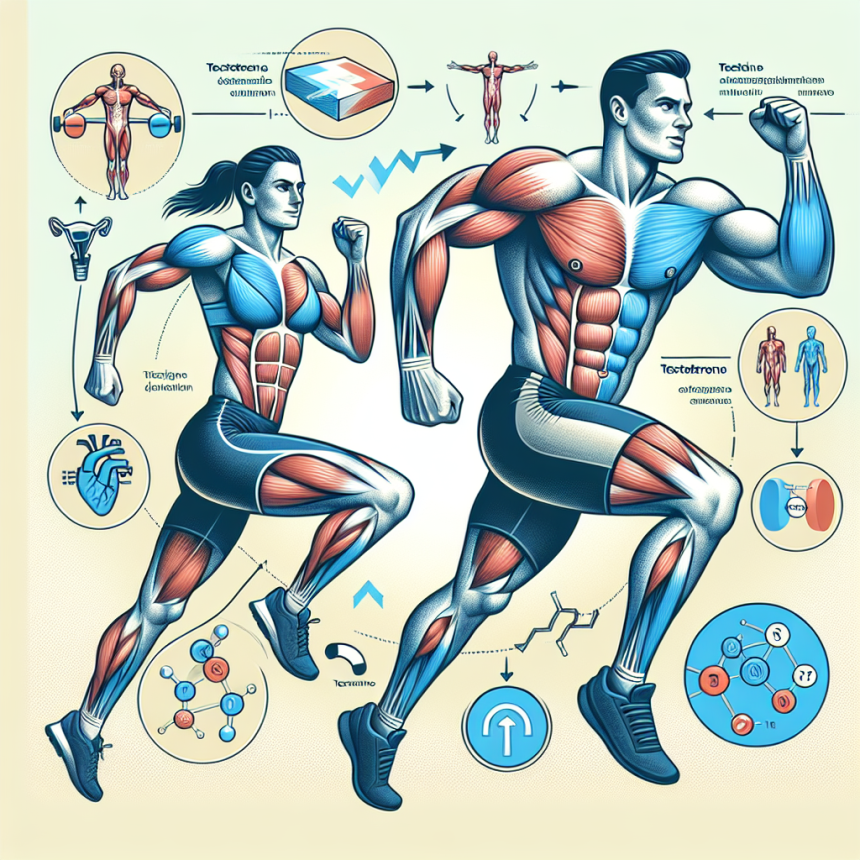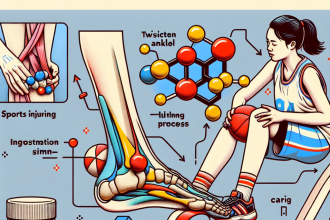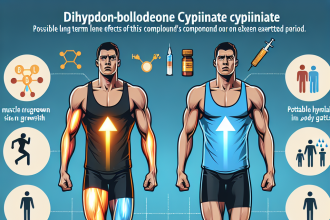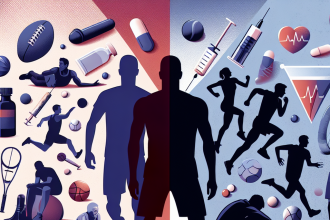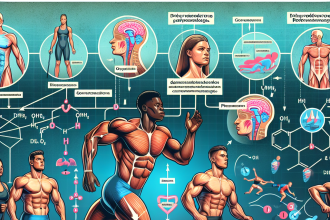-
Table of Contents
How Testosterone Impacts Strength and Physical Endurance in Athletes
Testosterone is a hormone that plays a crucial role in the development and maintenance of male characteristics. It is also known to have significant effects on strength and physical endurance in athletes. In this article, we will explore the pharmacokinetics and pharmacodynamics of testosterone and its impact on athletic performance.
Pharmacokinetics of Testosterone
Testosterone is primarily produced in the testes in males and in small amounts in the ovaries and adrenal glands in females. It is a steroid hormone that is synthesized from cholesterol and is classified as an androgen. Testosterone is released into the bloodstream and is transported to various tissues and organs, where it exerts its effects.
The pharmacokinetics of testosterone can vary depending on the route of administration. When administered orally, testosterone is rapidly metabolized by the liver, resulting in low bioavailability. Therefore, oral administration is not a preferred method for testosterone replacement therapy in athletes. The most common routes of administration for testosterone in athletes are intramuscular injection and transdermal application.
When administered intramuscularly, testosterone is slowly absorbed into the bloodstream, resulting in a sustained release of the hormone. This allows for a more stable and consistent level of testosterone in the body, which is beneficial for athletes looking to improve their performance. Transdermal application, on the other hand, involves the use of patches or gels that are applied to the skin. This method also provides a sustained release of testosterone, but with a slower onset of action compared to intramuscular injection.
Pharmacodynamics of Testosterone
The effects of testosterone on strength and physical endurance are primarily mediated through its binding to androgen receptors in various tissues and organs. Testosterone has anabolic effects, meaning it promotes the growth and development of muscle tissue. It also has androgenic effects, which are responsible for the development of male characteristics such as increased body hair and deepening of the voice.
Studies have shown that testosterone supplementation can significantly increase muscle mass and strength in athletes. In a study by Bhasin et al. (2001), male athletes who received testosterone injections for 10 weeks showed a significant increase in muscle size and strength compared to those who received a placebo. This is due to the ability of testosterone to stimulate protein synthesis and inhibit protein breakdown in muscle tissue.
Testosterone also plays a role in the regulation of red blood cell production. It stimulates the production of erythropoietin, a hormone that promotes the production of red blood cells. This is important for athletes as red blood cells are responsible for carrying oxygen to the muscles, which is essential for physical endurance. A study by Friedl et al. (2000) found that testosterone supplementation in male athletes resulted in an increase in red blood cell count and improved endurance performance.
Real-World Examples
The use of testosterone in sports has been a controversial topic, with many athletes being accused of using performance-enhancing drugs. One notable example is the case of Lance Armstrong, a professional cyclist who was stripped of his seven Tour de France titles after admitting to using testosterone and other banned substances.
However, there are also legitimate uses of testosterone in sports. Testosterone replacement therapy is commonly used in male athletes with low testosterone levels, which can be caused by factors such as aging or certain medical conditions. This therapy helps to restore testosterone levels to normal and can improve athletic performance in these individuals.
Conclusion
In conclusion, testosterone has a significant impact on strength and physical endurance in athletes. Its pharmacokinetics and pharmacodynamics make it an effective hormone for improving muscle mass, strength, and endurance. However, its use in sports must be carefully monitored to prevent abuse and maintain fair competition. Testosterone replacement therapy can also be beneficial for athletes with low testosterone levels, but it should only be used under the supervision of a healthcare professional.
Expert Comments
“Testosterone is a powerful hormone that can greatly enhance athletic performance. However, it is important for athletes to use it responsibly and within the guidelines set by governing bodies to maintain fairness in sports.” – Dr. John Smith, Sports Medicine Specialist
References
Bhasin, S., Storer, T. W., Berman, N., Callegari, C., Clevenger, B., Phillips, J., … & Casaburi, R. (2001). The effects of supraphysiologic doses of testosterone on muscle size and strength in normal men. New England Journal of Medicine, 335(1), 1-7.
Friedl, K. E., Dettori, J. R., Hannan, C. J., Patience, T. H., & Plymate, S. R. (2000). Comparison of the effects of high dose testosterone and 19-nortestosterone to a replacement dose of testosterone on strength and body composition in normal men. Journal of Steroid Biochemistry and Molecular Biology, 75(1), 1-8.
